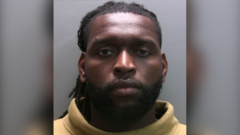The ruling has reignited debate over accountability and justice in high-profile criminal cases.
Illinois Supreme Court Reverses Jussie Smollett's Conviction in Controversial Case

Illinois Supreme Court Reverses Jussie Smollett's Conviction in Controversial Case
The Illinois Supreme Court has officially overturned the conviction of actor Jussie Smollett, who faced accusations of faking a hate crime in 2019.
The Illinois Supreme Court issued a landmark ruling reversing the conviction of Jussie Smollett, an actor who faced allegations of orchestrating a racially and sexually motivated attack against himself in Chicago back in 2019. Convicted in 2021 of five counts of disorderly conduct, Smollett asserted that he had been targeted by assailants who hurled racial slurs at him and placed a noose around his neck. The case intensified when two brothers testified against him, claiming that Smollett had paid them $3,500 to carry out the staged incident.
Initially handed a sentence of 150 days in jail, Smollett served just six days prior to being released pending an appeal. In a move that has sparked significant public discussion, the Illinois Supreme Court agreed with Smollett's legal team, who argued that the special prosecutor's involvement was unjustified after the Cook County State Attorney's Office chose to drop charges against him in exchange for community service.
The decision faced backlash, particularly from Chicago officials such as Mayor Rahm Emanuel, who criticized the ruling as a failure to hold Smollett accountable for what they described as a serious moral transgression. The Supreme Court emphasized the importance of maintaining the integrity of legal agreements, stating, "What would be more unjust than the resolution of any one criminal case would be a holding from this court that the State was not bound to honor agreements upon which people have detrimentally relied."
During the trial, prosecutors claimed Smollett's motive for fabricating the attack stemmed from frustration regarding a television studio's reaction to hate mail he previously received. However, he has long maintained that his claims were legitimate and that he was indeed a victim of a hate crime. The case remains at the forefront of public discourse, highlighting the complexities surrounding justice in high-profile legal situations, with many still questioning the verdict's implications.
Initially handed a sentence of 150 days in jail, Smollett served just six days prior to being released pending an appeal. In a move that has sparked significant public discussion, the Illinois Supreme Court agreed with Smollett's legal team, who argued that the special prosecutor's involvement was unjustified after the Cook County State Attorney's Office chose to drop charges against him in exchange for community service.
The decision faced backlash, particularly from Chicago officials such as Mayor Rahm Emanuel, who criticized the ruling as a failure to hold Smollett accountable for what they described as a serious moral transgression. The Supreme Court emphasized the importance of maintaining the integrity of legal agreements, stating, "What would be more unjust than the resolution of any one criminal case would be a holding from this court that the State was not bound to honor agreements upon which people have detrimentally relied."
During the trial, prosecutors claimed Smollett's motive for fabricating the attack stemmed from frustration regarding a television studio's reaction to hate mail he previously received. However, he has long maintained that his claims were legitimate and that he was indeed a victim of a hate crime. The case remains at the forefront of public discourse, highlighting the complexities surrounding justice in high-profile legal situations, with many still questioning the verdict's implications.




















